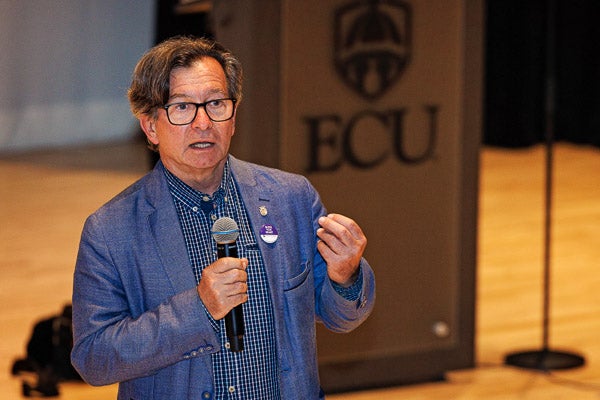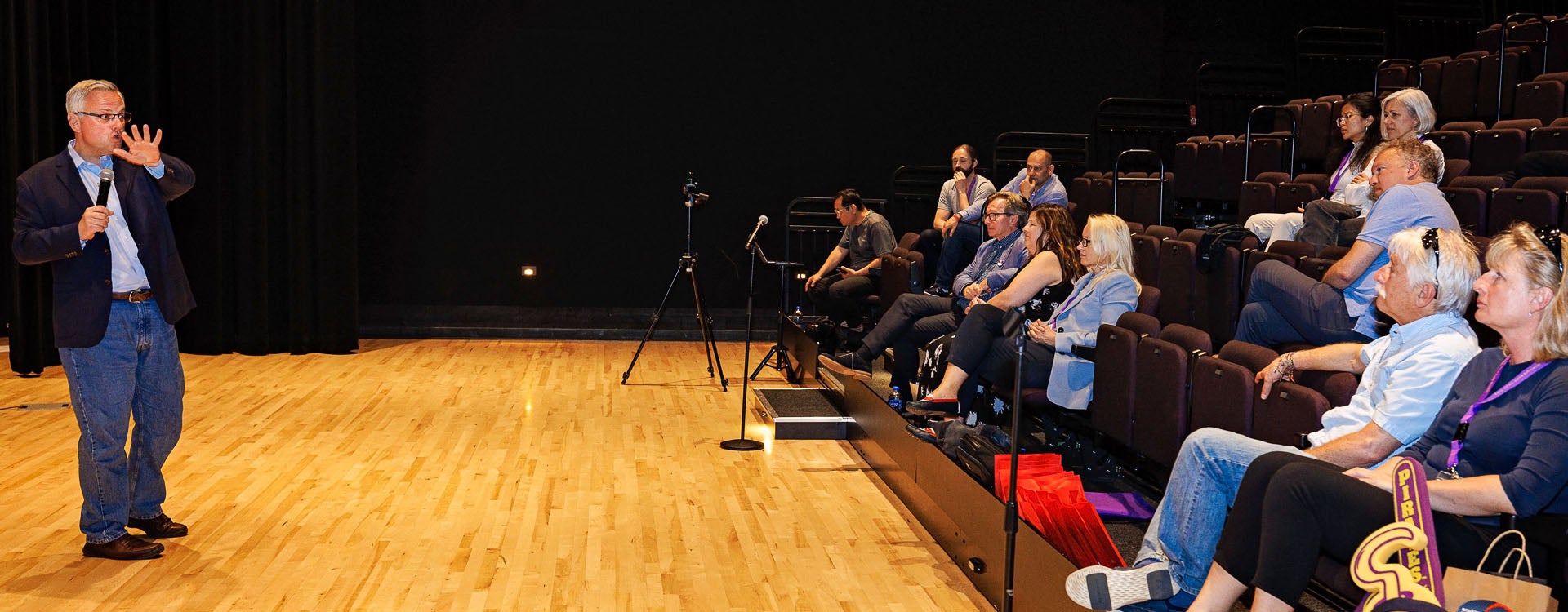ECU hosts Across Borders IX for first time in United States
East Carolina University hosted the ninth annual International Across Borders Conference for the first time in the United States in partnership with Jagiellonian University and Carpathian State College in Poland. Much of the conference focused on the Russia-Ukraine conflict.
ECU’s College of Fine Arts and Communication hosted the event May 16-19 with an overarching theme: “Freedom of Expression: Communication, Identity and Culture.”
Dr. Linda Kean, dean of ECU’s College of Fine Arts and Communication, has worked with Carpathian State College on a variety of projects since 2011, and was excited to welcome attendees from the United States, Poland, Ukraine, Peru, Czech Republic and the United Kingdom.

Władysław Witalisz speaks at the Across Borders Conference in the Black Box Theater. (Photos by Cliff Hollis)
The conference included multiple sessions moderated by ECU professors and guests such as TVN Bureau Chief Marcin Wrona and Dr. Valentyna Ushchyna, a professor at Lesya Ukrainka Volyn National University, who is living in Poland after fleeing Ukraine.
Wrona, one of the first to host a free radio station in Poland, closed the three-day conference with anecdotes from his time as a Washington correspondent and investigative journalist, and shared his thoughts on the conflict.
With his career in radio starting just five weeks after the first free election in Poland, he has experienced firsthand the need for free independent media. He spoke of a law passed in Russia that forbids “basically telling the truth.” He emphasized the danger of speaking out, as breaking this law can end up in a sentence of 15 years in a labor camp.
Transitioning from radio to TV in 1997, Wrona has gained valuable experience in understanding how media influences its audience. Wrona says Russia knows it can “control people’s minds,” which is why even young and educated citizens believe the state-controlled media in Russia. With government-controlled media, only small independent outlets remain, but most do not reach the Russian people.
In response to a question asked by an audience member, Wrona detailed the three aspects about the war being reported on by TVN, including the war itself, the refugee crisis, and what authorities are prepared to do if the conflict escalates. He stressed the importance of knowing next steps as Russian forces have been attacking towns as close as 10 miles from the Polish borders.
Attendees of the conference were able to view a virtual presentation given by Ushchyna. She stressed that the Russia-Ukraine conflict is a conflict of identity.
“What they (Russians) need is our identities,” she said.
In her presentation she included a picture of a street sign, which before Russia invaded, was written in Ukrainian and Russian. After the invasion, the street signs were removed and put back with only Russian text. She describes this as another way Russia is trying to erase Ukrainian identities.
Ukraine has had increased time in global media with recently winning the popular Eurovision Song Contest during the conflict. With the rise in popularity in the media, Ushchyna said the country is more recognizable to a global audience and “now we don’t have to explain who we are.”

Marcin Wrona speaks to a crowd at the Across Borders Conference.